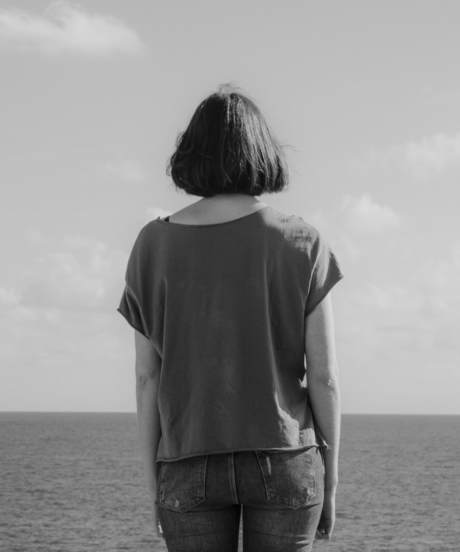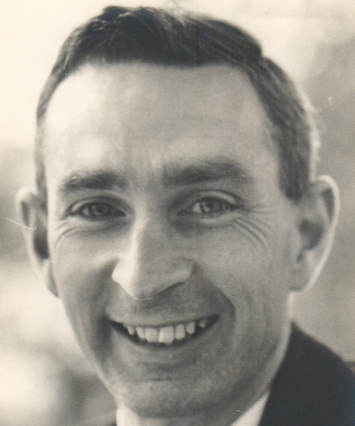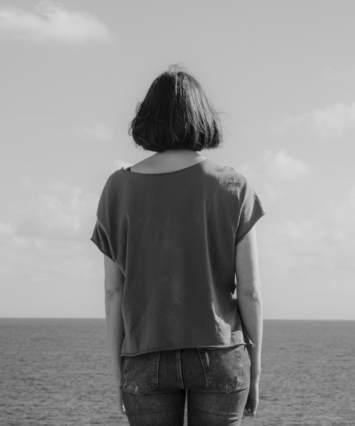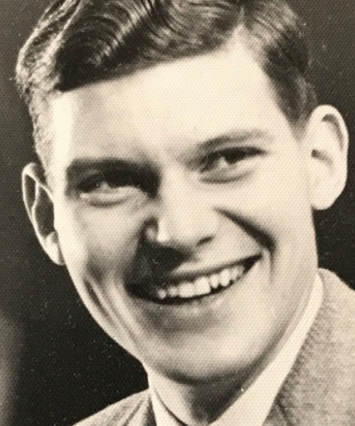Valour seems to be in Fiona Daukes’ DNA. A great-uncle won a Victoria Cross for gallantry during World War I and her father won a George Cross during World War II. As an RAF chaplain, he chose to join his men who were trapped in the hold of their troop ship when it was torpedoed, even though he could have made a bid for safety.
So it is perhaps not entirely surprising that some bold decisions have proved pivotal in Fiona’s life. The first was when, as a 17-year-old with her heart set on acting, she paused to see if God had anything to say to her. ‘Work with MRA and cook,’ was the clear command from within. Without any doubt or hesitation, she said yes to this.
Today, three quarters of a century later, she is still doing both of those things. In her mind, they are intimately connected. She has cooked in many countries, not just with the aim of feeding people’s bodies but also their spirits. And, during all those years, she has never received a salary, relying on the support of those who believe in the value of what she was doing.
Surprisingly for such an accomplished cook, Fiona never had any formal training – she learned on the job. Her experiences ranged from leading a cook-shift at large IofC conferences to baking cookies eight at a time, crouched over a home-made oven in the heat of Kerala, India, so that she could serve 40 guests for tea. For years she hosted IofC centres in India and London, normally in charge of the cooking as well.
She was still only 18 when, with 27 other Europeans, including her brother Geoffrey Pugh, she was invited to America, to further the work of MRA there. They spoke at meetings, helped to run conference centres, supported families and travelled a great deal, meeting many people. It was a time of learning – adventurous but demanding. At MRA’s large conference centre on Mackinac Island, Michigan, Fiona, still only 19, found herself in charge of a small team who had to cook many of the meals. The rest of the team comprised a 17-year-old who was a day-dreamer and a 15-year-old who was ‘terrific’. They cooked the first meal for a big Japanese delegation, one of the first to visit the US after World War II. Every third morning, they would be responsible for producing breakfast for 300. The coffee machines had to be put on early so, to allow enough time for quiet reflection and then to bike-ride across the island to the conference centre, they would set the alarm for 4.30 a.m. Nor were early nights on offer – Fiona sang in the chorus that performed MRA songs most evenings.
Eventually the European group went their separate ways. But Fiona stayed in America for almost four years.
A tough year followed when Fiona lost her mother and her grandmother in quick succession. Selling the family possessions from their rented home in Bridgnorth, Shropshire, was hard. All Fiona’s worldly goods fitted into just four suitcases. Not long after this, a man she had hoped to marry got engaged to someone else. She became cynical and bitter – to such an extent that when she and Geoff were invited to support Rajmohan Gandhi’s work in India, Geoff said to her, ‘What do you think you can contribute in India if you are like this here.’ She sat alone on a cold park bench in the middle of winter and suddenly realised that she was bitter against God.
Soon afterwards, she was in one of the London MRA houses with a group sitting round a candle-lit Christmas tree. She felt an inner compulsion to say something – another pivotal moment in her life. She simply apologised for having been so difficult. Everyone knew what she had been through and all were moved by her words. Fiona felt as if a weight had fallen from her shoulders.
In India, seeing some dreadful instances of deprivation in Kolkata, she thought to herself, ‘How could I ever be bitter?’
In all, Fiona spent eight-and-a-half years in India, across several visits. The longest was in Pune with her husband Geoffrey – they married in 1964 – and daughter Jacqueline. In the course of their marriage, Geoffrey and Fiona also worked in Sri Lanka, South Africa, Latin America and Fiji, to name but some. Nor did they neglect Europe. Jacqui was still a toddler when they went to live in Caux, Switzerland. Then followed 19 months in Germany, involving 22 changes of accommodation, and a couple of years in the Netherlands. The relatively settled four years in Pune must have been a great relief. Fiona reckons that it was the happiest time in their marriage.
Geoffrey and Fiona spent much of the 1980s hosting, with John and Jeanne Faber, the large IofC centre at Catherine Place in London. This was close to the Westminster Theatre, which was the main London centre for IofC, so they held many receptions for people invited to see the plays there. Visitors included diplomats; people working for peace in Zimbabwe; and Romanian royalty. So Fiona’s cooking skills were in constant demand and much appreciated.
After a life with no regular salary, the offer by Hugh Elliott, a retired colonial civil servant, of his home in Croydon must have felt like a godsend. The family purchased it for a modest price and moved there in 1988 but in 1990 Geoffrey died of cancer after 26 years of marriage.
Fiona has a remarkable capacity for friendship. In 1997, she and Jacqui spent six months travelling round the world, visiting many of the people whom Fiona had got to know over the previous 45 or so years.
Fiona turned 94 in May 2025. On her birthday morning she shared two things – a witty poem about getting old; and some profound thoughts which she had come across by a former Archbishop of York. She still retains the sense of fun and of calling which have characterised her life.





